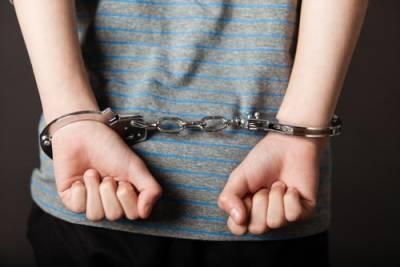Is There a Minimum Age for Prosecution in Criminal Cases?
 Recently, people throughout the United States were shocked by a school shooting that took place in Virginia. The incident occurred when a six-year-old child brought a gun to school and shot and wounded his teacher. This case has raised questions about whether the child could potentially face criminal charges, and this has in turn led to an examination of the laws that determine when children can face criminal prosecution.
Recently, people throughout the United States were shocked by a school shooting that took place in Virginia. The incident occurred when a six-year-old child brought a gun to school and shot and wounded his teacher. This case has raised questions about whether the child could potentially face criminal charges, and this has in turn led to an examination of the laws that determine when children can face criminal prosecution.
Age of Criminal Responsibility
Most countries have laws that set a minimum age at which a person can be prosecuted on criminal charges. The average age of criminal responsibility is 14, and most countries also prohibit prosecutors from pursuing charges against children under the age of 7. However, the United States has no federal law that sets a minimum age for criminal prosecution. These issues are addressed at the state level, and currently, 24 states, including Virginia have no minimum age of criminal responsibility. Other states have set minimum ages for prosecution ranging from 7 to 13 years old.
Criminal justice advocates have sought to address this issue and raise the age at which children can be held criminally responsible for their actions. They have noted that because children's brains are still developing, they may not fully understand the consequences of certain actions, and implementing harsh penalties can cause a great deal of emotional harm that may impede their development. Children who face criminal punishment are more likely to commit additional criminal offenses in the future, and they are less likely to complete their education and be able to find employment after reaching adulthood.
Rather than taking a punitive approach to children who commit crimes, advocates believe that diversionary programs should be used to provide children with support and counseling. These programs can help address the root causes of criminal behavior and ensure that children fully understand the harm done by their actions. They can also help children receive the proper education and avoid criminal behavior in the future.
Connecticut Laws Regarding Criminal Prosecution of Children
The state of Connecticut has taken some steps to address issues that affect children who commit criminal offenses. In 2021, the state passed a law that raised the minimum age of prosecution from 7 to 10. The state has also worked to implement measures that protect the rights of children who are accused of committing criminal offenses. In most cases, children under the age of 16 will not face criminal charges, but they may be involved in juvenile delinquency proceedings. A child who is adjudicated delinquent may be placed on probation or home confinement along with other penalties, such as the requirement to complete community service or pay restitution. If necessary, a minor may be placed in the custody of the Department of Children and Families, and they may be required to stay in a juvenile detention facility for up to 18 months (or up to four years if they allegedly committed a serious juvenile offense involving drugs or violence).
In some cases, minors who are 14 or 15 years old may be tried as adults. These cases usually involve allegations of serious crimes, and juveniles who have prior criminal records or who may pose a danger to society are more likely to face criminal penalties such as incarceration in an adult prison. Minors who are 16 or 17 years old will generally be tried as adults, although in some cases, they may be granted "youthful offender" status that will allow them to have their criminal records erased after completing their sentences.
Contact Our Connecticut Juvenile Criminal Defense Lawyer
Minors who are accused of committing criminal offenses can face a wide variety of harsh penalties. At Woolf & Ross Law Firm, LLC, we provide legal help and representation for children in these situations, and we work to protect their rights while advocating for solutions that will allow for rehabilitation. If your child is involved in juvenile delinquency proceedings or has been charged with a criminal offense, contact our Hartford juvenile justice attorney at 860-290-8690 to discuss your case in a free consultation.
Sources:
https://www.themarshallproject.org/2023/01/14/virginia-school-shooting-juvenile-justice-minimum-age
https://www.cga.ct.gov/ps94/rpt/olr/htm/94-r-1040.htm
https://www.amnesty.org.au/why-we-need-to-raise-the-minimum-age-of-criminal-responsibility/






